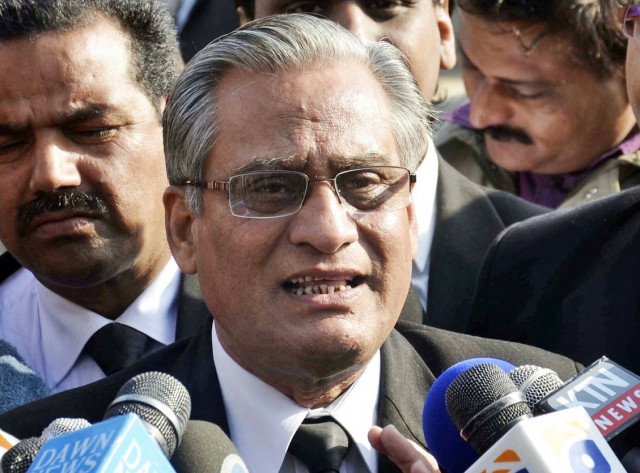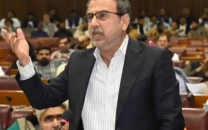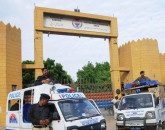Memogate hearing: Haqqani’s counsel refuses to cross-examine Ijaz in a huff
Changes mind after Haqqani persuades him to continue pleading his case.

The memo commission, probing the origin, authenticity and the purpose of the memorandum allegedly sent by former ambassador to the US, Hussain Haqqani, to retired US admiral Mike Mullen, on Friday turned into a fish market when Haqqani’s counsel refused to cross-examine Mansoor Ijaz.
“I cannot work with an angry judge, I don’t want to continue, I have conveyed to my client that I will not represent him anymore,” said Zahid Bukhari, Haqqani’s counsel, to the head of the commission Justice Qazi Faez Isa. Haqqani sought ten minutes from the commission to convince his counsel to continue.
At the outset of the proceedings, Ijaz had handed over his passport to the commission’s secretary to prove that he had visited the US last year. Resuming the cross-examination, Zahid asked Ijaz to disclose the name of the person who arranged his meeting with Director General ISI Ahmad Shuja Pasha. Ijaz replied that a person code named Burhan who claimed to be an assistant of General Pasha arranged the meeting. He said if the US government would have stopped him from meeting General Pasha he could decline the request, adding that Pasha had also given him his email and contact number after the meeting.
Replying to a question, Ijaz said that the contents of the memo were dictated to him by Haqqani over the phone on May 9, 2011, and he was taking notes during the call. He said after delivering the memo he sent a message to Haqqani and also shared the draft of memo with him. Ijaz added that the call between himself and Haqqani on May 9 was the first time the memo was discussed.
Ijaz told the commission that when General James Johns was a National Security Advisor he had asked him about Haqqani and told him that Haqqani claimed to be a National Security Adviser to the President.
He added that Haqqani is a close confidant of President Zardari and it is plausible that he might have given him additional responsibility which no one else knew about. At this point, the commission adjourned the proceedings for Saturday.
Published in The Express Tribune, March 17th, 2012.



















COMMENTS
Comments are moderated and generally will be posted if they are on-topic and not abusive.
For more information, please see our Comments FAQ